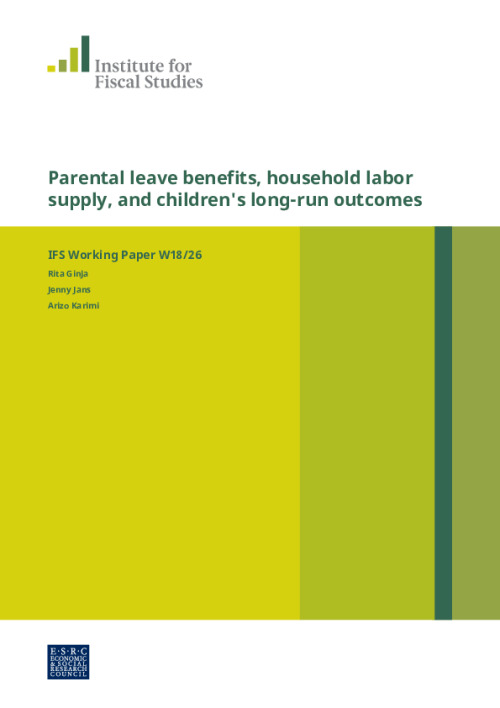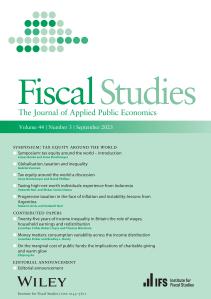Downloads

WP201826.pdf
PDF | 728.63 KB
We study how parental leave benefit levels affect household labor supply, family income, and child outcomes, exploiting the Speed Premium (SP) in the Swedish leave system. The SP grants mothers higher benefits for a subsequent child without re-establishing eligibility through market work, if two births occur within a pre-specified interval. We use the spacing eligibility cutoffs in a Regression Discontinuity framework and find that the SP improves educational outcomes of the older child, but not of the younger. Impacts are likely driven by increased maternal time and the quality of maternal time relative to the counterfactual mode of care.
Authors

Uppsala University

Research Associate University of Bergen
Rita is an IFS Research Associate, an Associate Professor at the University of Bergen and a Research Associate at the Uppsala University.

Jenny Jans
Working Paper details
- DOI
- 10.1920/wp.ifs.2018.2618
- Publisher
- The IFS
Suggested citation
R, Ginja and J, Jans and A, Karimi. (2018). Parental leave benefits, household labor supply, and children's long-run outcomes. London: The IFS. Available at: https://ifs.org.uk/publications/parental-leave-benefits-household-labor-supply-and-childrens-long-run-outcomes (accessed: 26 April 2024).
More from IFS
Understand this issue

Spring Budget 2024: What you need to know
7 March 2024

Spring Budget 2024: the Chancellor’s options

The £600 billion problem awaiting the next government
25 April 2024
Policy analysis

Spring Budget 2024
6 March 2024

Reforming the taxation of non-doms: policy options and uncertainties
4 March 2024

Oil and gas make Scotland’s underlying public finances particularly volatile and uncertain
27 March 2024
Academic research

Intertemporal income shifting and the taxation of business owner-managers
24 January 2024

Insurance, redistribution, and the inequality of lifetime income
2 November 2023

Symposium: tax equity around the world - introduction
11 September 2023